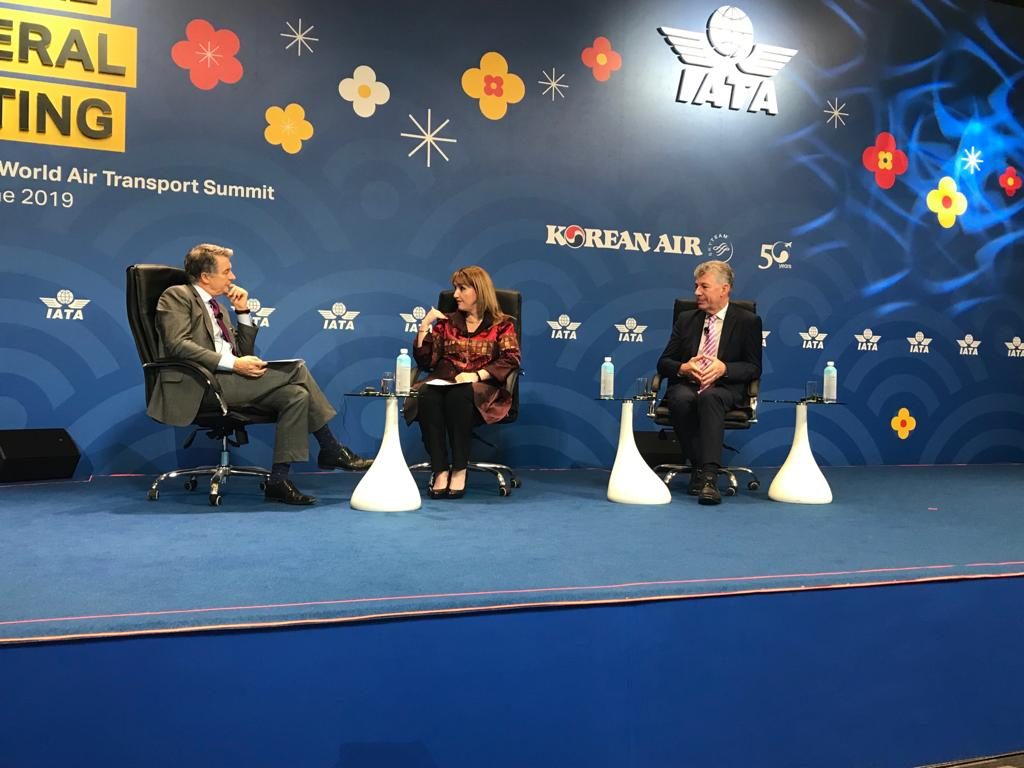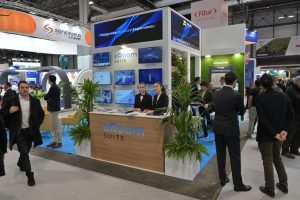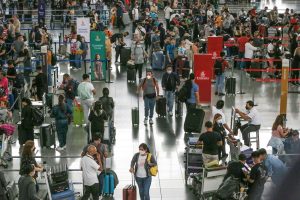Speaking at the IATA Annual General Meeting today, Gloria Guevara, President & CEO, World Travel & Tourism Council (WTTC) urged aviation industry leaders to support the IATA One ID initiative and assign resources to support the global pursuit of common standards and interoperability for the benefit of the entire Travel & Tourism sector.
Guevara said, “Biometric technology is the future of travel. It’s very simple: the faster we act, the faster we all reap the benefits of growth that accompany the adoption of biometrics – namely increased security, efficiencies and a better traveller journey. We have missed the opportunity to have a single solution; so it is crucial that we move faster to define the global standards for the use of technology in the traveller journey.
“I would like to congratulate IATA for its One ID initiative and we wholeheartedly support the resolution at this year’s AGM to encourage the faster global implementation of biometric passenger recognition. I urge airlines to assign resources to this initiative, and to work with IATA and WTTC on interoperability across the entire sector.
“We know that, according to IATA the number of air travellers will double by 2037. And it is clear that we will not see an increase of 100% in existing infrastructure, so it is important to get this right. Those companies which support and adopt biometrics early will have a competitive advantage in the market, so it’s up to airlines to support IATA in this important task.
“WTTC, which represents the global private sector of Travel & Tourism, is working with IATA to introduce biometric technology into the non-aviation element of the traveller journey to provide a seamless experience. Last year, WTTC brought together more than 200 leaders from across travel, technology and government to drive this forward. We have been working to understand, map and explore how technology can be used to facilitate seamless travel. Through this endeavour, we have come across at least 53 different implementations and trials in six regions across the world. As an industry, our efforts are fragmented, with competing agendas and no end-to-end seamless journey currently in development.
“It was recently reported that 71% of airlines and 77% of airports are currently investing in either researching or implementing biometric programs. We applaud each of these efforts, while also calling for the aviation industry to overcome fragmentation.
“Governments around the world are waiting for the private sector to align around a common standard and framework that can work across the entire Travel & Tourism sector regardless of the individual technology provider. If we end up with multiple solutions in each country that do not connect, the costs will be significant and we risk losing the very benefits which biometric technology will bring.
“Rather than operating in silos, it is crucial that we together in pursuit of the common aim: a solution that will support the full end-to-end seamless traveller journey incorporating multiple airports, multiple airlines, car hire companies, hotels, booking agents, cruises and other players in the travel ecosystem. This will allow us to have higher-level support from governments, and to move faster to achieve higher growth.”
The IATA Annual General Meeting, hosted by Korean Air, brought together 1,000 industry leaders to Seoul on from 1-3 June 2019.
About the World Travel & Tourism Council
WTTC is the body which represents the Travel & Tourism private sector globally. Members consist of CEOs of the world’s Travel & Tourism companies, destinations, and industry organisations engaging with Travel & Tourism.WTTC has a history of 25 years of research to quantify the economic impact of the sector in 185 countries. Travel & Tourism is a key driver for investment and economic growth globally. The sector contributes US$8.8 trillion or 10.4% of global GDP, and accounts for 319 million jobs or one in ten of all jobs on the planet.







